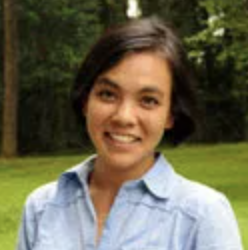BOGOR, Indonesia (14 June, 2012)_The President of Indonesia, Susilo Bambang Yudhoyono, visited the CIFOR campus Wednesday, June 13, to give a speech titled “Sustainable Growth and Equity”. Shortly after, Melati Kaye asked Senior Scientist Daniel Murdiyarso about a few points raised by Yudhoyono’s address.
Question: In today’s speech, President Yudhoyono said that in the course of ten years, Indonesia’s deforestation rate had dropped from 3.5 million hectares a year to half a million hectares a year. He mentioned this in light of the change Indonesia’s forestry policy has taken since 1970. Could you comment on that drop in deforestation rates?
Answer: That’s a great achievement but the challenge to meet the emission reduction target is not reducing the deforestation rate (hectare of deforestation per year). It is more important to reduce emission rates (ton of emissions per year). These are two different things. If you reduce emissions in ecosystems with high carbon density, for example peat swamps, it does not need to involve a large area. I hope the decrease in deforestation rates occur in such an ecosystem so the 26 percent emissions reduction target can be met sooner than 2020.
So how is Indonesia doing in terms of carbon emissions reduction targets committed to voluntarily at the 2009 Pittsburg G20 summit?
It depends if you are talking about Indonesia’s voluntary commitment to reduce carbon emissions by 26 percent [from business-as-usual levels] or the 41 percent figure the President said he would commit to if there were international assistance.
I would sit down and calculate whether the avoided deforestation falls in the area that has a significant impact on reducing emissions. At the moment, there is national legislation stating that by 2020, the land-use sector was tasked to reduce 670 million tonnes under the 26-percent emissions reduction target or with the 41percent target, that would be 1,000 million tonnes of carbon dioxide. Using my “back-of-the-envelope” calculations, even if only half of the already licensed peatlands was fully protected from conversions, Indonesia would be better off to achieve a 26-percent target. Peatlands are the low-hanging fruits.
Next week, the President heads to Rio de Janeiro for the Rio+20 conference. What do you see as Indonesia’s role at the negotiations given today’s speech?
Concerning Rio, Yudhoyono was talking about a long-term multilateral commitment on equity between developed and developing nations, and between the current and future generations. The future generation will have a better living standard compared to the current one so it is very likely that it will require more resources. This means that human capital will increase quite substantially in terms of its ability to produce and consume goods, while natural capital remains the same or declines. In light of that fact, the President was talking about opportunities but also potential competition in a world of scarcity. At this rate, we may not survive. So we have to choose a different course of economic development.
The world is so well connected, flow of goods and services will become much faster so that the pressure on natural capital will be huge if we continue consuming at our current pace and style.
President Yudhoyono urges that the world needs a collective political will to change the direction of economic development. Developed nations will have to demonstrate their leadership while developing nations should creatively participate.
Click play to listen to Metro TV’s interview with CIFOR Senior Scientist Daniel Murdiyarso following the President’s speech. Murdiyarso also comments on the Meranti tree species that the President planted on the CIFOR campus and its cultural significance. The interview is in Indonesian.
Click here for a transcript of the President’s speech
Click here for photos from the President’s visit to CIFOR.
We want you to share Forests News content, which is licensed under Creative Commons Attribution-NonCommercial-ShareAlike 4.0 International (CC BY-NC-SA 4.0). This means you are free to redistribute our material for non-commercial purposes. All we ask is that you give Forests News appropriate credit and link to the original Forests News content, indicate if changes were made, and distribute your contributions under the same Creative Commons license. You must notify Forests News if you repost, reprint or reuse our materials by contacting forestsnews@cifor-icraf.org.











